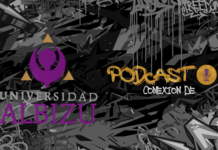In unprecedented times, something as simple as having a constructive, compassionate discussion can work wonders to bring about positive change, according to an accomplished group of Albizu University psychology professionals who spoke during a recent webinar on navigating holiday stress amid the unrelenting threat of COVID-19.
Moderated by Emmy-winning former NBC broadcast journalist Ed O’Dell, the November 10, 2020 virtual discussion also included recommendations on preventing pre-existing bad habits from spiraling out of control during the stressful holiday time, an explanation of how to recognize the difference between burnout and “compassion fatigue,” helpful tactics for coping with COVID-amplified seasonal stress, and how to know when to seek professional mental health help.
The esteemed panelists offering expert insights for the timely discussion were:
- Dr. Scott M. Hyman, Ph.D., Albizu Doctoral Clinical Psychology Program Professor and award-winning substance abuse expert
- Yamila Lezcano, LMHC; Albizu Assistant Professor, Undergraduate Psychology & Education Program and Program Director for the Miami Mental Health Awareness Initiative
- Dr. Isaac Tourgeman, Ph.D., M.S., Albizu ClinPharm Assistant Professor–Doctoral Program Psychology; noted neuroscience expert specializing in neurorehabilitation and speech pathology
“Everyone was stressed even before COVID,” said Dr. Hyman noted, explaining that the pandemic, piled on top of the election season, sheltering in place, unemployment and the various daily stresses of day-to-day life has been overwhelming for many people. “It’s affected their ability to think clearly and their decision-making. It makes people more impulsive and more likely to seek out negative behaviors like overeating and substance abuse to feed their neurochemical reward system.”
Professor Lezcano added that clinicians are seeing pandemic-related burnout and emotional exhaustion caused by unprecedented circumstances. Burnout quickly translates into physical symptoms such as muscle tension, sleeping issues, cardiac symptoms, digestive problems and general irritability—all of which can impact family and intimate relationships.
“Stress is actually a perfectly normal reaction to things that occur around us,” Dr. Tourgeman said. “It becomes a question of how long and how severely they’ve been happening. If you’re having physical symptoms and you think you’re stressed, it’s a good idea to tell your doctor or specialist what’s going on.”
Competency in stress reduction methods can help,” Dr. Hyman explained. “You’ll be able to think things through and come up with a better action plan to deal with a problem when it arises.”
Not every stress reduction technique applies to every situation, he cautioned. “For example, driving in the car is not the time to start doing yoga. Rather, that’s a better time to start cognitive strategies like slowing down and re-orienting your thinking. Recognize that your mind can seek other alternatives.”
Getting to sleep on time, eating healthy, getting plenty of exercise and engaging in personally meaningful activities can help release “feel good” neurotransmitters in our brains to help us feel better, he said.
“Incorporating self-care into your daily routine can help create resilience,” Professor Lezcano suggested.
She explained that caregivers, medical professionals and human resources professionals who face prolonged exposure to unhappiness and difficult situations often experience a different type of burnout known as “compassion fatigue.”
Doctors and clinicians have had to rapidly adjust to dramatic changes in how they deliver mental health counseling, simultaneously worrying about getting infected with COVID-19, infecting their families and withstanding long, grueling workdays. This stressful combination of concerns has contributed to a rise in depression, substance abuse and anxiety among front-line professionals.
“When people feel a loss of control, that’s when anxiety levels soar,” Dr. Tourgeman explained.
In such an environment, the clinical therapy process often attempts to help people navigate their thinking in a more rational manner, and evaluate situations differently with techniques such as cognitive diffusion and cognitive behavioral therapy.
During the audience Q&A portion of the webinar, the panelists fielded questions on how to talk to one’s family members who disagree on COVID-19 safety protocols, as well as how to handle cultural differences affecting how mental health issues are perceived and addressed.
“Many consider mental health issues to be a sign of weakness and unfitness,” Professor Lezcano said. “But mental health problems are more common than diabetes or heart disease.”
Dr. Tourgeman suggested that changing someone’s mind is often easier to do by trying to understand their motives rather than negating them. “When negative behaviors arise, they usually arise for a reason and serve a purpose for that person. As clinicians, we try to come up with a behavior they can use to replace it.”
Reframing the COVID-19 pandemic as an opportunity for people to pause, introspect and redefine their lives can help, especially during the holiday season.
“During this challenging time, we can’t have the same expectations. We have to adjust to our means,” Professor Lezcano said. “We must focus on the positive, be thankful for what we have and maybe even develop new traditions or memories.”
“It’s the approach that sets the tone,” Dr. Tourgeman explained. “Much of the surge in mental health issues right now comes from the incongruence between where we see ourselves and what we think we should be.”
To view the video replay of this week’s “Dealing with COVID and Holiday Stress” forum, click here.
To make a telehealth appointment at the Albizu Clinic (no insurance necessary) click here.





